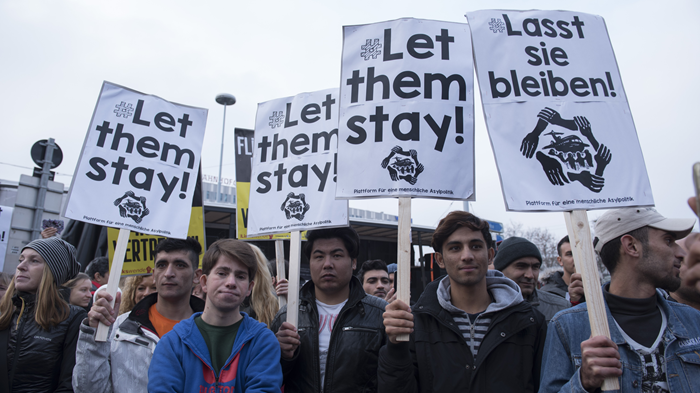Unintended Consequences and its Victims
"It's unexplainable. Suddenly they said, 'Now you can't come'."
"Most of us cannot go back to Iran; we're in complete despair. We are afraid they will give us a sentence [the Iranian regime view them as traitors, sentence them accordingly]. They could put us in jail."
H. Avakian, 35, Armenian Christian, Iranian refugee, Austria
"[The government of the Islamic Republic of Iran engages in] systematic, ongoing and egregious violations of religious freedom, including prolonged detention, torture and executions based primarily or entirely upon the religion of the accused."
United States Commission on International Religious Freedom
 |
Islam has a controversial and peculiarly polarized relationship with other religions. On one hand, it formally recognizes Judaism and Christianity as sharing some of Islam's precepts, even while reality is that Islam has lifted its sacred precepts from the religions it considers its predecessor 'try-outs' by a God dissatisfied with the earlier iterations, giving his final stamp of approval to the third, Islam, and on the other hand reserving the right to have a wholly negative view of their sacred legality, having spurned the Prophet's invitation to abandon Judaism and Christianity and submit to Islam as Allah has decreed.
So, even while Iran's Constitution proclaims Shiite Islam the official state religion, shunning Sunni Islam as an illegitimate version of true Islam, recognizing Christians, Jews and Zoroastrians as minority religions given Iranian protection, in point of fact the Republic goes out of its way to violate its own stated patronizing position on the protected status it so magnanimously offers religions with a connection to Islam, purporting to be separately quasi-divine, but in actual fact their presence an affront to Islam not taken lightly.
 |
| An Iranian woman prays as she attends Christmas Eve mass at the St Joseph Armenian Catholic church in Tehran on Dec. 24, 2016. (Atta Kenare/AFP/Getty Images) |
And they felt so assured there would be a place for them in the United States that they liquidated all their holdings, left their professions and cut themselves away from their place of birth in Iran in a search for freedom for themselves and their families. They travelled to Austria as a safe transit site there to await the processing of their visas enabling them to arrive in the United States to begin their lives anew there. They are still waiting, some one hundred Iranian Christians a year later, their savings drained as they awaited applications for refugee status to be processed.
A return to Iran in recognition of U.S. failure to regard them as refugees, validating their requests and allowing them to emigrate to America, would result in their lives being endangered since the government of Iran regards them as enemies of the state. The 1989 U.S. law, the Lautenberg Amendment offers safe haven to persecuted religious minorities. Among those awaiting word from the U.S. that they may proceed as requested, are ethnic Armenian and Assyrian Christians, Mandaeans and Zoroastrians who have been mostly sponsored by relatives in the U.S.
 |
One of the families already conditionally approved for refugee status later received a notice of ineligibility which stated their application "has been denied as a matter of discretion". Recent changes in the U.S. refugee admissions programs resulted, according to a State Department spokeswoman, in "a greater number of denials in the Vienna refugee program", leaving the U.S. Austria and others to work in tandem hoping to find alternatives for the anxiously waiting groups of Iranian Christians.
 |
Image: Omar Marques / Anadolu Agency / Getty Images
Asylum seekers join 2016 protests in Vienna, Austria.
|
Labels: Christians, Iran, Jews, Persecution, Refugees, United States

0 Comments:
Post a Comment
<< Home